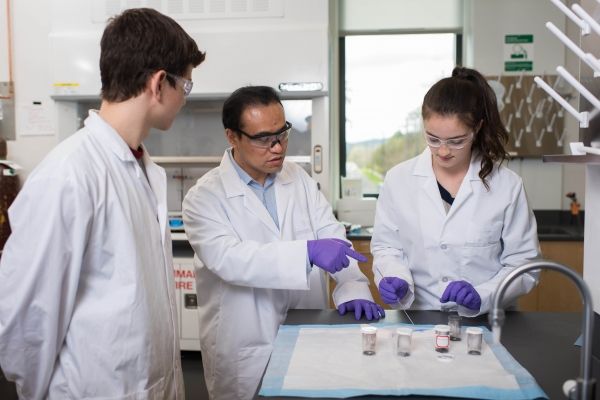Alternative-energy research at Oregon State University is charting a path toward the mass adoption of clean cars powered by direct-ethanol fuel cells.
Zhenxing Feng of the OSU College of Engineering helped lead the development of a catalyst that solves three key problems long associated with DEFC, as the cells are known: low efficiency, the cost of catalytic materials and the toxicity of chemical reactions inside the cells.
Feng and collaborators at Oregon State, the University of Central Florida and the University of Pittsburgh found that putting fluorine atoms into palladium-nitrogen-carbon catalysts had a number of positive effects – including keeping the power-dense cells stable for nearly 6,000 hours. A catalyst is a substance that increases the rate of a reaction without itself undergoing any permanent chemical change.
Findings were published today in Nature Energy.
Read more at Oregon State University
Image: Joseph Pedersen, L, Zhenxing Feng, Morgen Messer


